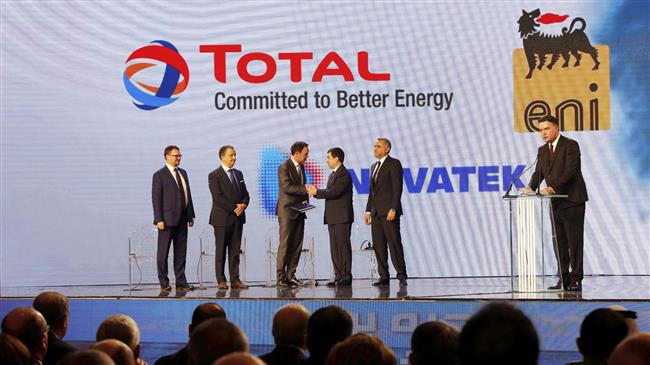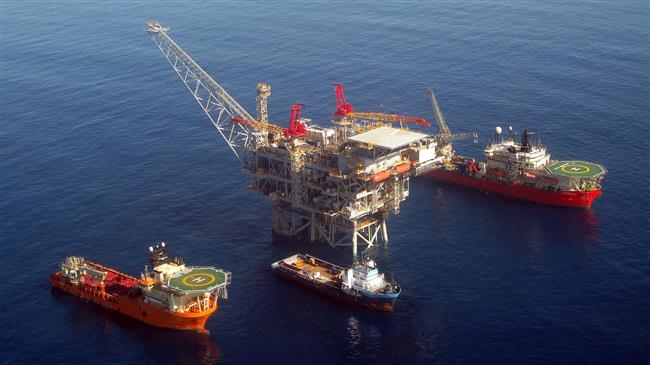


Lebanon has started exploration of oil and gas at its offshore energy reserves in the Mediterranean waters disputed by the Israeli regime.
Lebanon’s Energy and Water Minister Cesar Abi Khalil said in a televised statement that the exploration project for the country’s first oil and gas reserves began on Tuesday after Lebanese officials approved a plan submitted by a consortium of France’s Total, Italy’s Eni and Russia’s Novatek.
Khalil expressed hope that Lebanon would launch the second phase of offshore licensing by the end of 2018 or early 2019.
The announcement came after months of tensions between Lebanon and Israel over the disputed energy reserves.
No immediate reaction has been observed on the part of Israeli officials.
In December 2017, the Lebanese government granted licenses to a consortium of three international companies to carry out exploratory drilling in Lebanon’s Block 4 and Block 9 territorial waters and determine whether they contain oil and gas reserves.
Israel lashed out at the three international firms for making “a grave error” by accepting the offer. Israeli minister of military affairs Avigdor Lieberman warned that Lebanon would “pay the full price” should another war erupt between the two sides.
Lebanon, however, was quick to respond to the blatant threat, with Energy Minister Abi Khalil pledging that Beirut was going to push ahead with its exploration plans.
Lebanese President Michel Aoun also vowed to use all the diplomatic powers vested in him to resolve the dispute, saying the country had a right to “defend its sovereignty and territorial integrity by all means available.”
The territorial dispute between Israel and Lebanon runs over 776 square kilometers (300 square miles) of waters claimed by both sides.
The underlying Levant basin of the Eastern Mediterranean has been proven to contain large natural gas reserves and maybe even crude oil.
Israel itself has long been developing a number of offshore gas deposits in the Mediterranean Sea, with the Tamar gas field, with proven reserves of 200 billion cubic meters, already producing gas, while the larger Leviathan field is expected to go online in the coming months.
A source close to Israeli Prime Minister Benjamin Netanyahu said in 2012 that Israel’s natural gas reserves were worth around $130 billion. A Businessweek estimate later that year put the reserves’ value at $240 billion.
Israel relies heavily on gas. According to estimates by the Israel Natural Gas Lines, the Israeli-occupied Palestinian territories consumed around 9.5 Billion Cubic Meters (BCM) in 2016. The number is expected to reach 10.1 BCM in 2018.


